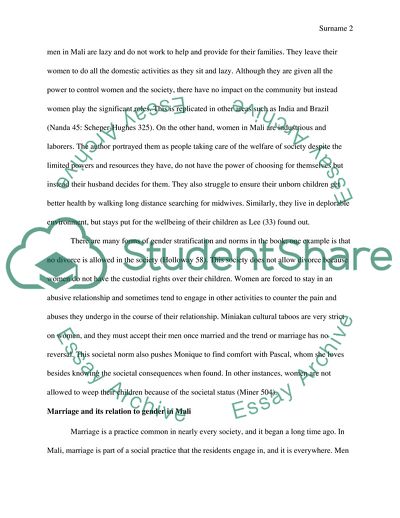Cite this document
(Monique and the Mango Rains - the Lack of Rights of Women in Mali Book Report/Review Example | Topics and Well Written Essays - 1250 words, n.d.)
Monique and the Mango Rains - the Lack of Rights of Women in Mali Book Report/Review Example | Topics and Well Written Essays - 1250 words. https://studentshare.org/gender-sexual-studies/1847208-essay-assignment-monique-and-the-mango-rains
Monique and the Mango Rains - the Lack of Rights of Women in Mali Book Report/Review Example | Topics and Well Written Essays - 1250 words. https://studentshare.org/gender-sexual-studies/1847208-essay-assignment-monique-and-the-mango-rains
(Monique and the Mango Rains - the Lack of Rights of Women in Mali Book Report/Review Example | Topics and Well Written Essays - 1250 Words)
Monique and the Mango Rains - the Lack of Rights of Women in Mali Book Report/Review Example | Topics and Well Written Essays - 1250 Words. https://studentshare.org/gender-sexual-studies/1847208-essay-assignment-monique-and-the-mango-rains.
Monique and the Mango Rains - the Lack of Rights of Women in Mali Book Report/Review Example | Topics and Well Written Essays - 1250 Words. https://studentshare.org/gender-sexual-studies/1847208-essay-assignment-monique-and-the-mango-rains.
“Monique and the Mango Rains - the Lack of Rights of Women in Mali Book Report/Review Example | Topics and Well Written Essays - 1250 Words”. https://studentshare.org/gender-sexual-studies/1847208-essay-assignment-monique-and-the-mango-rains.


